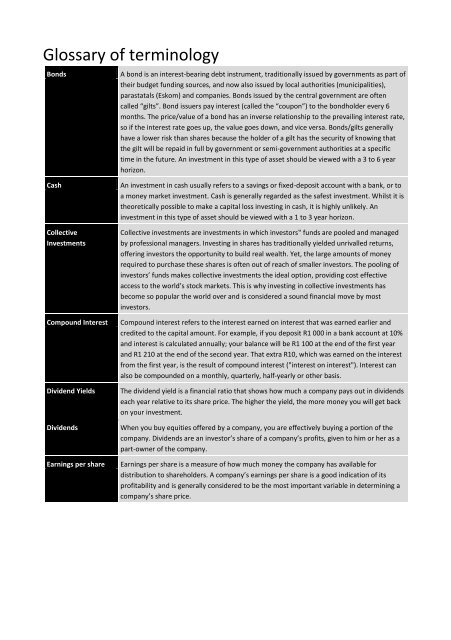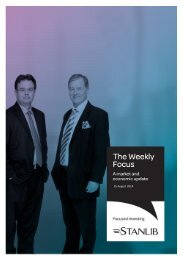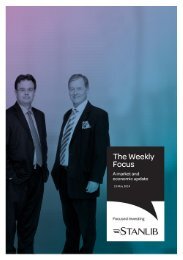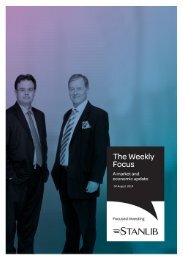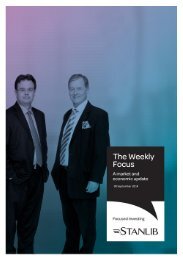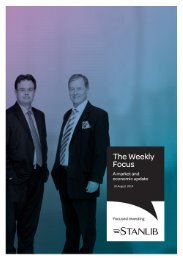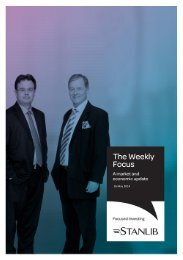FgfHpk
FgfHpk
FgfHpk
Create successful ePaper yourself
Turn your PDF publications into a flip-book with our unique Google optimized e-Paper software.
Glossary of terminology<br />
Bonds<br />
A bond is an interest-bearing debt instrument, traditionally issued by governments as part of<br />
their budget funding sources, and now also issued by local authorities (municipalities),<br />
parastatals (Eskom) and companies. Bonds issued by the central government are often<br />
called “gilts”. Bond issuers pay interest (called the “coupon”) to the bondholder every 6<br />
months. The price/value of a bond has an inverse relationship to the prevailing interest rate,<br />
so if the interest rate goes up, the value goes down, and vice versa. Bonds/gilts generally<br />
have a lower risk than shares because the holder of a gilt has the security of knowing that<br />
the gilt will be repaid in full by government or semi-government authorities at a specific<br />
time in the future. An investment in this type of asset should be viewed with a 3 to 6 year<br />
horizon.<br />
Cash<br />
Collective<br />
Investments<br />
Compound Interest<br />
Dividend Yields<br />
Dividends<br />
Earnings per share<br />
An investment in cash usually refers to a savings or fixed-deposit account with a bank, or to<br />
a money market investment. Cash is generally regarded as the safest investment. Whilst it is<br />
theoretically possible to make a capital loss investing in cash, it is highly unlikely. An<br />
investment in this type of asset should be viewed with a 1 to 3 year horizon.<br />
Collective investments are investments in which investors‟ funds are pooled and managed<br />
by professional managers. Investing in shares has traditionally yielded unrivalled returns,<br />
offering investors the opportunity to build real wealth. Yet, the large amounts of money<br />
required to purchase these shares is often out of reach of smaller investors. The pooling of<br />
investors’ funds makes collective investments the ideal option, providing cost effective<br />
access to the world’s stock markets. This is why investing in collective investments has<br />
become so popular the world over and is considered a sound financial move by most<br />
investors.<br />
Compound interest refers to the interest earned on interest that was earned earlier and<br />
credited to the capital amount. For example, if you deposit R1 000 in a bank account at 10%<br />
and interest is calculated annually; your balance will be R1 100 at the end of the first year<br />
and R1 210 at the end of the second year. That extra R10, which was earned on the interest<br />
from the first year, is the result of compound interest ("interest on interest"). Interest can<br />
also be compounded on a monthly, quarterly, half-yearly or other basis.<br />
The dividend yield is a financial ratio that shows how much a company pays out in dividends<br />
each year relative to its share price. The higher the yield, the more money you will get back<br />
on your investment.<br />
When you buy equities offered by a company, you are effectively buying a portion of the<br />
company. Dividends are an investor’s share of a company’s profits, given to him or her as a<br />
part-owner of the company.<br />
Earnings per share is a measure of how much money the company has available for<br />
distribution to shareholders. A company’s earnings per share is a good indication of its<br />
profitability and is generally considered to be the most important variable in determining a<br />
company’s share price.


